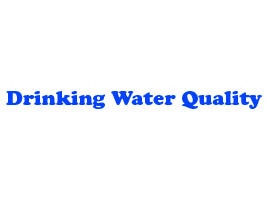There is need of improvement in the quality of drinking water which can be achieved as follows:
- New water supply sources should be identified and regularly monitored for safe supply of the drinking water.
- Water supply schemes at Tehsil level needs to be introduced.
- There is a potential for investors for bottled drinking water in major cities like Rawalpindi, Islamabad, Lahore, Karachi, etc; where major industrial units operate and contaminate the water resources.
- New treatment technology can be implemented for better water treatment. Alum is conventionally used and considered to be obsolete.
- Water supply must ensure that the supply of water to the consumers is of safe quality particularly with respect to bacterial contamination. A very effective and economical way to decontaminate bacterially affected water is ozonation. For this, the civic bodies and concerned agencies should be made to install ozonators on tube wells supplying drinking water to citizens;
- The departments responsible for water supply in urban areas in particular should replace age-old leaking pipes in their water supply systems to reduce bacterial contamination.
- It should be mandatory for the agencies responsible to regularly monitor quality of water being supplied to the consumers through analysis done at their own laboratories or other accredited laboratories of repute; All the Tehsil Municipal Administrations should keep the record of regular monitoring.
- Regular monitoring of all water resources and water points at the national level should be ensured to help identify problem areas, causes of contamination, and design a framework of corrective plans;
- The National Drinking Water Quality Standards, promulgated by Pakistan Standards Quality Control Authority should be enforced immediately and made applicable to both private and public bodies and entrepreneurs in the Water Sector;
- Most of the industries in the country are indiscriminately discharging harmful toxic elements into water bodies. The Environmental Protection Agency should become more active and strictly enforce laws and regulations preventing industrial entrepreneurs from discharging their effluents directly into open water bodies and groundwater;
- Sub-standard chemicals containing impurities should not be used in the treatment plants
- Alternate sources of water should be identified in areas where the quality of source of existing water supply is questionable.
- Low cost household level water treatment technologies with low technical input to use them should be developed using indigenous material and expertise particularly for controlling and treating water with biological, arsenic, and fluoride contamination.
- No new water supply scheme should be approved unless detailed investigations of water quality, quantity, possible sources of local contamination, and its sustainability have been carried out;
- For effective awareness, educational institutions & mosques including mass media should be used for creating awareness about the importance of water quality among the users;
The provision of good quality water in Pakistan is a challenge due to a number of factors affecting the quality of water e.g., pollution, lack of efficient water supply system and awareness of localities etc. so there is a potential for private investors to establish clean and safe drinking water facility with high efficiency water treatment technology. This will reduce the rate of water borne diseases and will also improve the quality of life.
By Saadat Ali, Environmental Consultant, Website: http://projectpi.pk/ Email: Saadat9@yahoo.com




